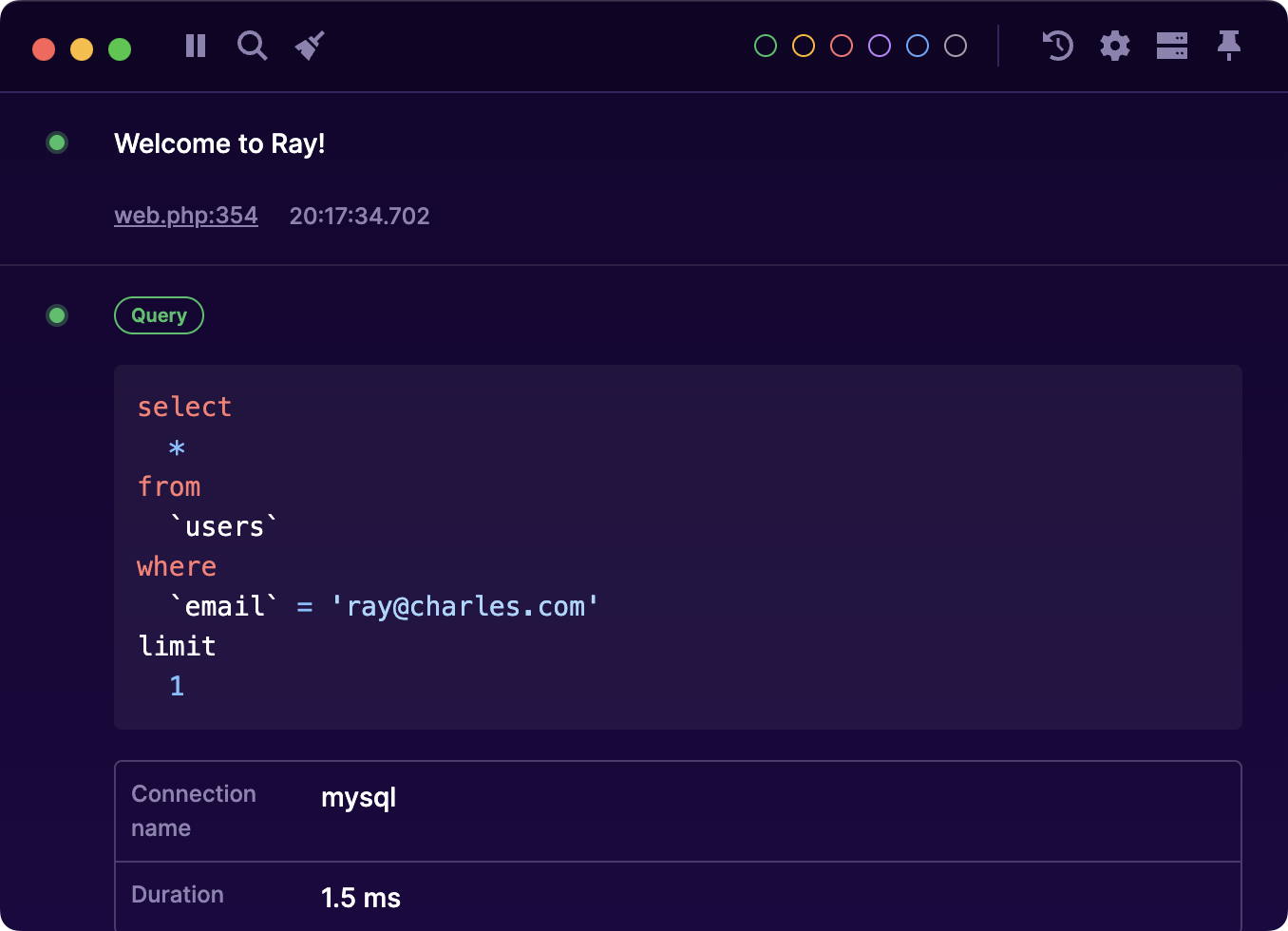Structure of a Payload
Every time any data is sent to Ray, a payload is generated with the same basic structure before being sent to the Ray app.
If you run the following test PHP script, you'll get the payload example below sent via HTTP POST to the Ray app.
ray()->html('<em>hello world!</em>');
#Payload example
{ "uuid": "ca539a10-bfd5-3e5a-6271-0c4a95612132", "payloads": [ { "type": "custom", "content": { "content": "<em>hello world!</em>", "label": "HTML" }, "origin": { "function_name": "test", "file": "/home/user/projects/test-project/test.php", "line_number": 16, "hostname": "my-hostname" } } ], "meta": { "php_version": "7.4.16", "php_version_id": 70416, "ray_package_version": "1.20.1.0" } }
#Payload sections overview
All of the listed payload sections are required when sending a payload from an integration library.
- The
"uuid"section contains a validUUIDv4value. This value is important, as it can be used in future to modify the payload after it's been sent to Ray (i.e., changing its color). - The
"meta"section contains metadata about the Ray integration library as well as the current language and its version. - The
payloads[0].originsection contains information about where the call toray()originated from. It's used to tell Ray what file to open when the related file link is clicked. - The
payloads[0].typevalue contains the type of payload being sent. - The
payloads[0].contentvalue contains the payload-specific content to display within the Ray app. This varies depending on the type of payload.





